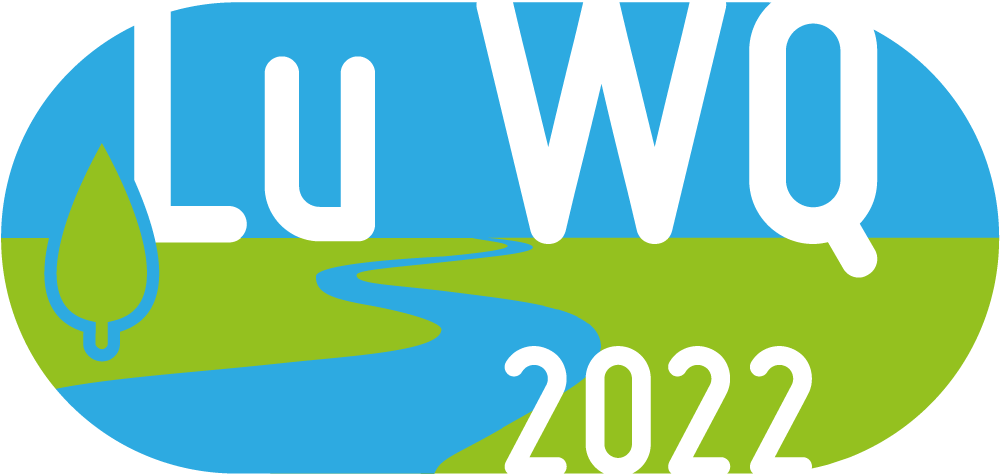Abstracts from Scientific Advisory Committee
30 abstracts were received from members of Scientific Advisory Committee and two abstracts from Organising Committee (per 21 February 2022)
Gary Feyereisen, USA
Abstract #5
Eating the metaphorical elephant: Meeting nitrogen reduction goals in the USA’s Upper Mississippi River Basin
Cors van den Brink, the Netherlands
Abstract #7
Dutch approach to meet the nitrate objectives in vulnerable groundwater protection areas reviewed
Patrick Durand, France
Abstract #18
Modelling nitrogen dynamics in farming landscapes: From system understanding to support to policies, 20 years of TNT2 model
Nicolas Surdyk, France
Abstract #22
Challenges for linking agricultural pressure indicators with water quality state indicators – Examples from FAIRWAY project
Michael Trepel, Germany
Abstract #42
Nutrient modelling in the national monitoring program for implementation of the Nitrate Directive
Lærke Thorling, Denmark
Abstract #54
Redox conditions in European groundwater and nitrate pollution potential
Serge Brouyère, Belgium
Abstract #59
The CASPER project: an integrated approach for pollution risk assessment in peri-urban groundwater catchment areas
Wibke Christel, Denmark
Abstract #87
Green transition of Agriculture – How Denmark plans to reduce aquatic N pollution and GHG emissions by transforming the sector and integrating N & C management at farm and landscape scale
Ryan Turner, Australia
Abstract #89
Analysis of fifteen years of anthropogenic loads of sediment, nitrogen and phosphorus entering the Great Barrier Reef, Australia
Ryan Turner, Australia
Abstract #91
Reef Catchments Science Partnership – Enabling water quality improvements for the Great Barrier Reef
Dominika Krzeminska, Norway
Abstract #101
The effect of constructed wetlands under future climate conditions – 18 years of measurements in a small Constructed Wetland in Norway
Phil Jordan, Great Britain
Abstract #104
Using short-rotation willow coppice to mitigate water quality impacts from point sources
Natalie Kieboom, Great Britain
Abstract #109
National Sector Inventory and heat mapping of nitrogen loads to groundwater in England
Martin Schönhart, Austria
Abstract #120
Integrated assessment of policies to manage nutrient losses from agricultural land under climate change in Austria
Gitte Blicher-Mathiesen, Denmark
Abstract #121
Effect of extreme climate events on responses of nitrogen leaching and concentrations in agricultural catchments in Denmark
Gunnar Lischeid, Germany
Abstract #124
The curse of the past – What can tile drain effluent tell about arable field management?
Joachim Rozemeijer, the Netherlands
Abstract #128
Impact of climate variability and water conservation on farm-scale P and N losses towards surface water from four years of high-resolution monitoring
Hans Peter Broers, the Netherlands
Abstract #129
Hydrogeological constraints on age distributions and nitrate evolution in Dutch chalk springs
Phil Jordan, Great Britain
Abstract #134
MCPA: revealing the pressures and addressing the challenges at catchment scale
Katarina Kyllmar, Sweden
Abstract #149
Adaptive water management in the agricultural landscape: A framework for integration of field experiments, long-term monitoring, modelling and local engagement
Pavel Rosendorf, Czech Republic
Abstract #161
Strategy for nutrient reduction in waters in the international Elbe River basin district – Goals and Opportunities
Claudia Heidecke, Germany
Abstract #180
Aspects of implementing Farm to Fork nitrogen targets with tools, measures and policy instruments across Europe
Bob Middleton, Great Britain
Abstract #192
Linking evidence and delivery: evaluating and improving delivery of water quality measures at the farm level
Thomas Harter, USA
Abstract #204
Quantifying long-term regional groundwater quality benefits from agricultural practices
Jenny Deakin, Ireland
Abstract #205
Science-Policy-Action-Outcomes. Ireland’s journey towards improving water quality
Berit Hasler, Denmark
Abstract #207
Cost-effective implementation of the WFD in Denmark – A national scale modelling approach
Berit Hasler, Denmark
Abstract #208
Cost-effective phosphorus load reductions to lakes – An integrated modelling approach
Marco Acutis, Italy
Abstract #209
Is organic farming a solution to promote water quality and ecosystem services in the Russian part of the Baltic Sea catchment area?
Ken Taylor, New Zealand
Abstract #214
The use of quantitative models in environmental regulation in New Zealand: Problems, priorities, and principles
Falk Hilliges, Germany
Abstract #226
Evaluation of water data as a main contribution to the effect monitoring for the implementation of the Fertiliser Ordinance in Germany
Brian Kronvang, Denmark (member of Organising Committee LuWQ2022)
Abstract #20
A novel machine learning national model for diffuse source total phosphorus concentrations in streams
Brian Kronvang, Denmark (member of Organising Committee LuWQ2022)
Abstract #39
Advancing understanding of the importance of surface runoff for delivery of water, sediment, nutrients and pesticides to streams within agricultural catchments
Brian Kronvang, Denmark (member of Organising Committee LuWQ2022)
Abstract #221
Pitfalls and new solutions in water quantity and quality monitoring
